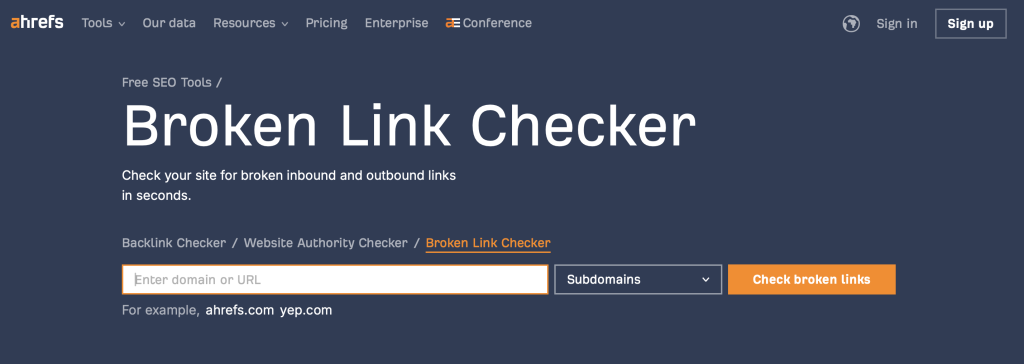One popular backlink building method is using ‘broken links.’ This technique involves identifying broken or dead links on other websites that no longer direct to an active page. Once you find these broken links, contact the website owner or webmaster to inform them about the issue and suggest your website’s content as a suitable replacement so the website owner maintains a good user experience by fixing broken links and providing you with an opportunity to gain valuable backlinks, which can enhance your website’s search engine ranking and visibility.
However, there are several reasons to be cautious about this approach.
Time-Consuming Process
Although specialized tools like Ahrefs, SEMrush, or other Broken Link Checker software can automate parts of the process, it still demands a significant time investment. You need to list all the authoritative sites within your industry, manually check all the broken link possibilities, and then contact the site owners to suggest your link as a replacement. Balancing this with other responsibilities can be overwhelming.
Moreover, after investing all that time and effort, the website owner is not guaranteed to replace the broken link with your suggested one. They might remove the broken link altogether or replace it with another resource, leading to uncertain and often disappointing outcomes. Even if your backlink is accepted, it may not provide significant value for your Google Rankings, as not all broken links are found on high-authority websites. It’s crucial to focus on websites that offer valuable backlinks.

Ahrefs offers a free, simple broken link checker, but a subscription is required to access the full set of results.
High Competition
In some industries, finding broken links can be particularly challenging due to competition. In niche markets, the pool of relevant websites is smaller, making finding broken links you can leverage harder. On the other hand, in highly competitive markets (‘red oceans’), numerous digital marketers and SEO professionals are likely pursuing the same strategy. Your request might get lost among many others, especially if the website owner receives numerous similar requests, reducing the chances of your backlink being accepted.
The intense competition can also lead to dishonest approaches. Webmasters often receive false reports about broken links, either to get their attention or from black-hat SEO practitioners trying to replace backlinks that aren’t actually broken with their own. It’s not uncommon to encounter false broken link reports almost daily.
Is Broken Link Building Suitable for SMB Owners?
As a small business owner, you’re always looking for effective ways to improve your search engine ranking, but there may be better approaches than the broken link-building method. Other link-building strategies could be more effective and efficient. Consider guest posting, creating high-quality content that naturally attracts backlinks, engaging in community forums, and leveraging social media. These methods provide more consistent and reliable results without the significant time and resource investment required for the broken links technique.
